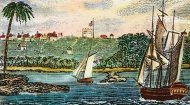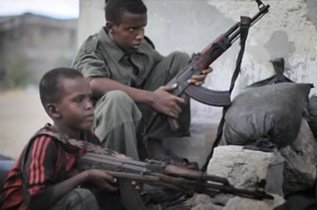|
|
|
Liberian Civil War |
Liberian Civil War |
Liberian Civil War | Liberian Civil War |
Find out all about Liberia in a series of information articles, latest daily news, videos, and images.
More >
|
|
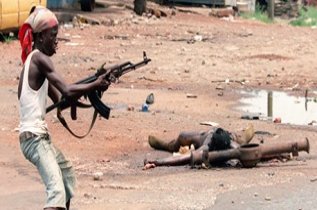
However Taylor's regime was just as harsh and brutal as its predecessor and further conflict erupted across the country in 1999 deemed the second Liberia civil war with international concern that Taylor was supporting rebels in neighbouring Sierra Leone. The war was triggered when Liberian rebels calling themselves the Organisation of Displaced Liberians carried out attacks in Liberia from Guinea. The attacks soon descended into a three way war between Liberia, Guinea and Sierra Leone. A state of emergency was declared by Taylor in January 2002 after his forces lost control of vast swathes of the country. By August 2003 Taylor had been forced to step down and leave the country going into exile in Nigeria with the United Nations launching a major peacekeeping mission, however tensions between various groupings led to ongoing outbreaks of violence. In 2006 Taylor appeared before a UN backed court in Sierra Leone faced with charges of crimes against humanity. He was recently found guilty and sentenced to a 50 year a prison term, the longest sentence handed down by the court. When Taylor resigned in August 2003 the parties involved in the second civil war had agreed a ceasefire with a two year National Transitional Government for Liberia. Elections were duly held in 2005 which saw Ellen Johnson Sirleaf elected after a run-off, Africa's first woman head of state. Deemed to be a good president, Sirleaf had the advantage of appealing to Americo-Liberians as she was educated at Harvard, whilst she is half Gola on her father's side, and a quarter Kru on her mother's side. She served as the 24th President of Liberia from 2006 to 2018 and was succeeded by George Manneh Oppong Weah, a former professional footballe, then Joseph Boakai, the former vice-President and current incumbent of the office. The video (above) shows pictures and images of the Liberian civil war. |
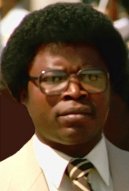 Despite this internal dissent Liberia enjoyed a period of relative calm until 1980 when Master Sergeant
Samuel Doe (left) staged a military coup, backed by ethnic soldiers who had eventually
tired of Americo-Liberian rule, killing the President William R. Tolbert, Jr. and executed most of his cabinet.
Doe then suspended the constitution effectively ending Africa's
first republic and became the country's first non
Americo-Liberian leader since the country's inception. In 1985 elections
were held to legitimise Doe's rule, however Doe lost the
vote and responded by firing all count officials, replacing
them with his own and declaring himself the narrow victor. The
following month Thomas Quiwonkpa, a former Commanding General of
the Armed Forces of Liberia, launched a botched coup, and he was
later executed by Doe's soldiers along with between 2000-3000
civilians. Hundreds of opposition
politicians were arrested and held in detention.
Despite this internal dissent Liberia enjoyed a period of relative calm until 1980 when Master Sergeant
Samuel Doe (left) staged a military coup, backed by ethnic soldiers who had eventually
tired of Americo-Liberian rule, killing the President William R. Tolbert, Jr. and executed most of his cabinet.
Doe then suspended the constitution effectively ending Africa's
first republic and became the country's first non
Americo-Liberian leader since the country's inception. In 1985 elections
were held to legitimise Doe's rule, however Doe lost the
vote and responded by firing all count officials, replacing
them with his own and declaring himself the narrow victor. The
following month Thomas Quiwonkpa, a former Commanding General of
the Armed Forces of Liberia, launched a botched coup, and he was
later executed by Doe's soldiers along with between 2000-3000
civilians. Hundreds of opposition
politicians were arrested and held in detention.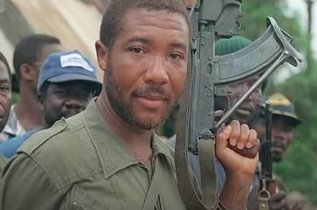 This election and coup spawned an even more oppressive regime
that was to sew the seeds of the first Liberian
Civil War in 1989 when the Americo-Liberian
Charles Taylor and his National Patriotic Front of Liberia (NPFL)
supported by Burkina Faso and the Ivory Coast entered Liberia
and soon seized control of all lands save for an area around the
capital of Monrovia.
This election and coup spawned an even more oppressive regime
that was to sew the seeds of the first Liberian
Civil War in 1989 when the Americo-Liberian
Charles Taylor and his National Patriotic Front of Liberia (NPFL)
supported by Burkina Faso and the Ivory Coast entered Liberia
and soon seized control of all lands save for an area around the
capital of Monrovia.
